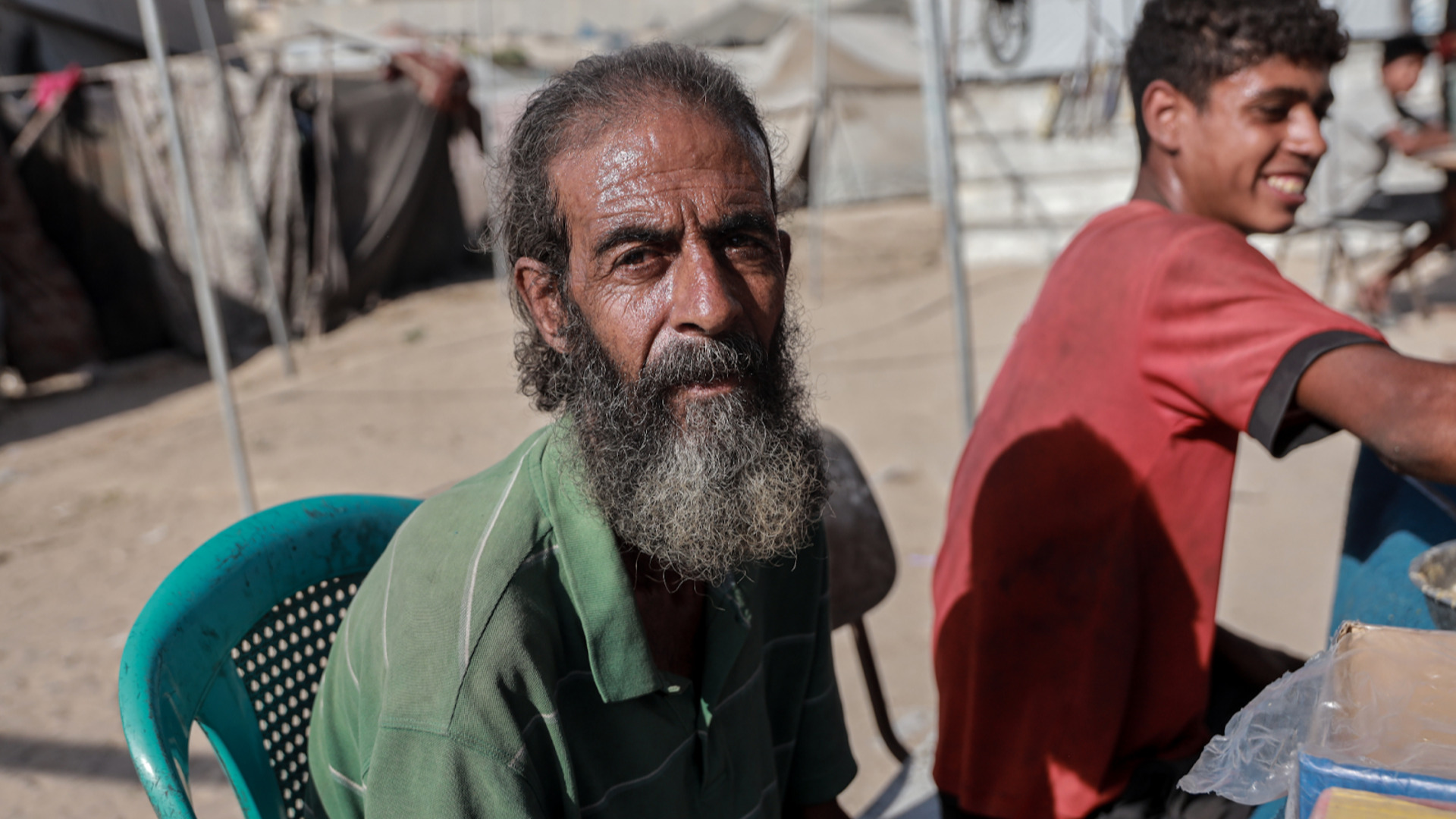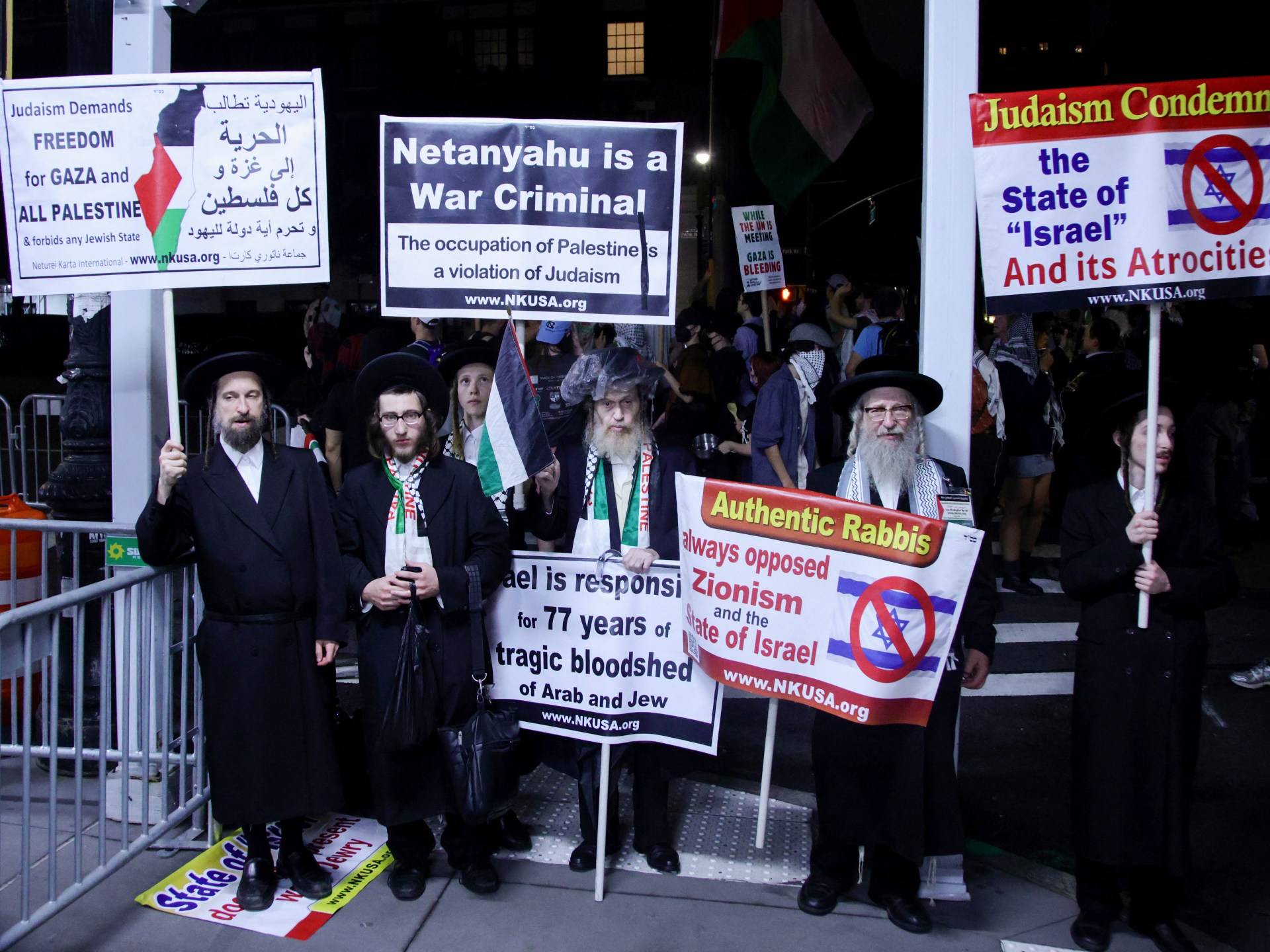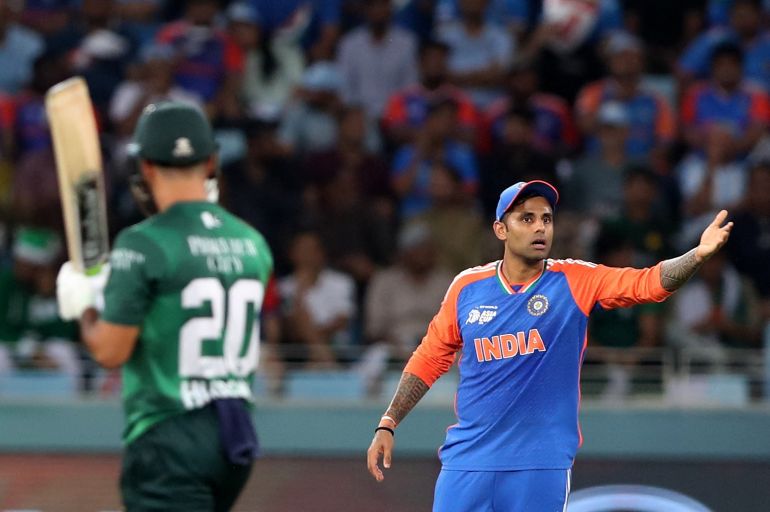Microsoft has announced that it has withdrawn some of its services from the Israeli army, following an investigation that raised concerns that Israel may be violating the company’s terms of service by using its artificial intelligence (AI) and cloud services to spy on millions of Palestinians throughout Gaza and the West Bank.
The decision on Thursday followed a joint investigation by the United Kingdom’s Guardian newspaper and Israeli publications +972 Magazine and Local Call, which revealed in August that the Israeli army was using Microsoft’s Azure cloud platform to conduct mass surveillance of Palestinians amid Israel’s brutal onslaught on Gaza, which has killed more than 65,000 people in less than two years.
Recommended Stories
list of 4 itemsend of list
Microsoft has, in recent months, fired or reported several employees to the police over protests about the use of its software by the Israeli army in Gaza. In August, four employees were fired. Several others have quit the company in protest over Microsoft’s ties to the Israeli army, which they said were enabling the devastation in Gaza.
The tech company consistently denied those claims, but, following the investigation, it announced it had commissioned an external review of its communications on Israel by Washington, DC law firm, Covington & Burling LLP, and another, unnamed technical consulting firm.
Here’s what we know:
What has Microsoft announced about its AI services in Israel?
In a blog post directed to employees on Thursday, Microsoft’s vice chairman and president, Brad Smith, revealed that an external review of the company’s communication records and financial statements had prompted Thursday’s decision, as elements supporting its findings were found to be true. Smith did not detail the specific evidence, but stated that it related to the Israeli army’s use of Azure and Microsoft’s AI services.
“We therefore have informed IMOD of Microsoft’s decision to cease and disable specified IMOD subscriptions and their services, including their use of specific cloud storage and AI services and technologies,” Smith wrote, referring to the Israeli Ministry of Defense.
“We have reviewed this decision with IMOD and the steps we are taking to ensure compliance with our terms of service, focused on ensuring our services are not used for mass surveillance of civilians,” he added.
This marks a major shift in Microsoft’s stance on this issue. In May, following similar findings reported by The Associated Press news agency that the Israeli army’s spy agency, Unit 8200, was using Microsoft services for mass surveillance in Gaza, the company said it had conducted internal reviews of its records.
While it acknowledged that advanced AI and cloud computing services had been sold to the Israeli military to aid in its efforts to locate and rescue Israelis captured by Hamas on October 7, Microsoft said it found no evidence its services were being used to target or harm people in Gaza.
In his statement on Thursday, Smith said the review of its services to the Israeli military was ongoing, but that the decision to restrict some services had been made because Microsoft’s terms of service “prohibit the use of our technology for mass surveillance of civilians”.
Why has Microsoft changed its stance on this issue now?
Simply, the company says it did not know what the Israeli military was using its services for.
Smith said the August news report had revealed information that Microsoft itself had not been privy to because of customer privacy regulations.
The company has reiterated several times that it had no way of knowing how the Israeli army was deploying Microsoft technology due to these privacy policies.
Which AI or Surveillance technologies have been withdrawn?
Smith said only specific Microsoft service subscriptions had been blocked from the Israeli military, and that Israel would still be able to use other Microsoft products for the country’s own cybersecurity.
He did not specify which particular products were disabled, or if specific units in the Israeli military had been barred from using them.
However, he did mention that there were issues relating to how the Israeli army uses its Azure storage servers based in the Netherlands, as well as Microsoft’s AI services.
What is Microsoft’s Azure, and how has it been used in Gaza?
Microsoft’s Azure platform provides a host of cloud-based services, including near-limitless digital storage and powerful AI capabilities that, among many things, allow for compiling, transcribing, translating and analysing vast numbers of phone calls.
The Azure platform was the main subject of the August news investigation, which revealed that Microsoft CEO Satya Nadella met with Yossi Sariel, the then-head of Israel’s military spy agency, Unit 8200, in late 2021 at the company’s headquarters in Seattle to discuss collaborating on the storage of large volumes of ‘”sensitive” Israeli intelligence, using Azure.
Unit 8200 is the Israeli military’s elite cyberwarfare unit responsible for clandestine operations, including collecting signal intelligence and surveillance. Sariel has driven the unit’s use of AI, and was awarded by the Israeli military in 2018 for his work on an “artificial intelligence and anti-terrorism” project.
After the Seattle meeting, Unit 8200 built a mass surveillance tool that it has used to sweep, record and store millions of phone calls made by Palestinians in Gaza and the West Bank since 2022, according to the authors of the investigative report. Sariel resigned in September 2024 over the unit’s failure to predict the October 7 Hamas-led attack on southern Israel.
While Israel has long intercepted calls in the occupied Palestinian territory, the new AI-powered system bolstered that tactic immensely, allowing intelligence officers to capture and store millions of phone calls and texts and for a much longer period, the news investigation revealed.
The AP, earlier in February, also reported that the Israeli military’s use of Microsoft products surged after October 7. The Israeli military used gigabytes of cloud storage and huge amounts of AI-enabled language translation services for mass surveillance, cross-checked with in-house AI systems to decide on who should be targeted in air attacks, the AP reported.
Did Microsoft really not know what Azure was being used for?
Although Microsoft’s position is that it had no knowledge of how Israel was using Azure, leaked Microsoft documents and interviews with 11 Microsoft sources showed that Unit 8200 was storing Palestinian communications on the platform, the joint expose noted.
Sources from Unit 8200 also told the reporters that those capabilities have helped the Israeli army to target people in deadly air attacks on Gaza and in its military operations in the West Bank. The Israeli military tracked “everyone, all the time”, one Unit 8200 source was quoted as saying in the investigation.
“The whole arrangement from the beginning, from 2021 … was between the head of 8200, a unit that is known for doing surveillance on Palestinians, and the very top officials of Microsoft,” journalist Meron Rapoport, who was involved in the investigation, told Al Jazeera on Friday.

How significant is Microsoft’s decision to withdraw its services?
Tech analysts are sceptical about how much Microsoft’s decision will affect Israel’s surveillance operation in Gaza and the West Bank. It is unclear how Microsoft will ensure that the Israeli army, as a whole, no longer has access to Azure, its AI services or other Microsoft products that could be used to continue mass surveillance and conduct deadly attacks or other operations.
Hossam Nasr, one of the more than a dozen Microsoft employees who were fired or arrested for protesting the company’s involvement in the Gaza war, told AP on Thursday that the recent move was an “unprecedented win”, but ultimately not enough.
“Microsoft has only disabled a small subset of services for only one unit in the Israeli military,” said Nasr, an organiser with the group No Azure for Apartheid, which includes other former Microsoft employees. “The vast majority of Microsoft’s contract with the Israeli military remains intact.”
How have Israeli and US officials responded?
Responding to Microsoft’s move, an unnamed Israeli official was quoted by AP as saying the decision would do “no damage to the operational capabilities” of the Israeli army.
How has Israel surveilled Palestinians in the past?
Al Jazeera has documented the adverse physical and mental impacts of constant Israeli surveillance on Palestinians, including the use of CCTV and a facial recognition system called Red Wolf that is deployed in parts of the occupied West Bank.
The programme is used at military checkpoints in Hebron and occupied East Jerusalem, where Israeli settlers have moved to scan the faces of Palestinians and add them to a database, without their consent. The system aids the Israeli military in its discriminatory policies of banning Palestinians from using certain road networks that are only open to settlers.
Similar tactics have been deployed by the Chinese government to surveil Uighur Muslims, rights defenders noted.
Palestinians have long claimed that Israel, which produces and sells spyware to several countries, uses them to test its products. Israeli cybersecurity company NSO Group came in for widespread criticism in 2021 over its flagship software Pegasus, which clients were using to target opposition political members, activists and journalists – including some working for Al Jazeera, according to a media investigation.
Clients of the spyware were not revealed, but they included governments and were reportedly clustered in Azerbaijan, Bahrain, Hungary, India, Kazakhstan, Mexico, Morocco, Rwanda, Saudi Arabia and the United Arab Emirates.
In May 2023, Amnesty International concluded that Israel was increasing its surveillance in Hebron and East Jerusalem, and was using Red Wolf to “entrench” its system of apartheid.
“This surveillance is part of a deliberate attempt by Israeli authorities to create a hostile and coercive environment for Palestinians, with the aim of minimising their presence in strategic areas,” the rights organisation said.





